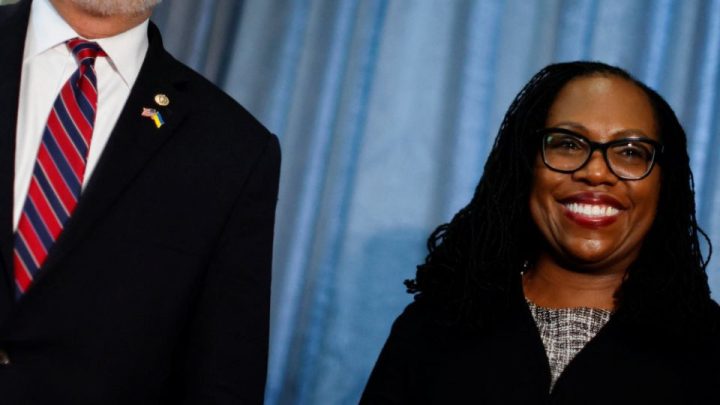
When I was just a teenager I couldn’t get the Platters’ 1955 hit song « The Great Pretender » out of my skull. « Oh, yes, I’m the great pretender. Pretending that I’m doing well. My need is such, I pretend too much. I’m lonely but no one can tell. »
While the song was about losing a girlfriend, the words and melody touched my heart in a deeper way. After all, what adolescent doesn’t pretend to be confident and assured when inside they feel as insecure as a flower in a shallow vase, and, like the Great Pretender who acts with bravado, they can’t help but wear their heart « like a crown »? I still can’t get that melancholy song out of my head!
Freddie Mercury re-recorded and re-imagined the song in 1987, when he was 40. It was his way of showing he was not just the self-assured, flamboyant rock star he played on stage but still the shy child who was sent to a boarding school a world away when he was only 7, still the adolescent who endured merciless teasing about his misshapen teeth, still the outsider who would always feel isolated in a world that did not look kindly upon gays.
« Oh yes, I’m the great pretender, just laughing and gay like a clown, » Freddie wailed in the song’s music video as he swaggered down MGM stairs accompanied by images of a make-believe life.
Aren’t we all like Freddie Mercury?
I know I was. Still am.
We don’t have to be abandoned or mocked or LGBTQ in a hostile world to feel the pain of being human. I don’t know anyone who doesn’t bear scars of early trauma. And I don’t know anyone who hasn’t pretended, at one time or another, to be someone or something they’re not in order to survive in this insane, unforgiving world. Sometimes it even makes us better.
Vickie Leach, my wife of 54 years who died not long ago, fell on a glass rabbit when she was 3 years old. The rabbit ear slashed her eye, blinding her and leaving her eye scarred and cloudy.
« All I ever wanted, » she remembered, « was to look like everybody else. » People stared or avoided looking at her eye as she was growing up, and sometimes Vickie just wanted to hide. Instead, she pretended to be strong and stand tall and face the world.
Vickie became president of her high school class and, later in life, assistant principal of a high school where students loved to go to her office after school and tell her about their worries and desires to be like everybody else. Vickie, an embodiment of compassion, had said to me early on, « No matter the size of our problems, large or small, the quality of our suffering is the same. »
I grew up in a small, one-bedroom apartment with a single mom. My bed was a foldable cot tucked under a dining room table. I envied my friends who lived in houses and had their own bedrooms and siblings to play with and family Christmases shared under the glow of a great big tree just like I saw in those Norman Rockwell paintings on the covers of The Saturday Evening Post.
Advertisement
So many of my friends exuded a confidence and sense of humor, while I had to pretend to be Sid Caesar, the funniest guy in the room, or Ernie Banks, the best ballplayer on the team. Anything to belong.
It was only when we all became old that I learned that my friends, too, all of them, had suffered lack and loss of one kind or another but kept it to themselves, and had to fake it to make it as much as I did. We were all « The Great Pretender, » the overachiever who seemed to be what he’s not.
We all pretty much settled into our own selves through the passage of time but not without trial and error and the healing pain that comes through the heat of spiritual transformation. Still, I pretend to be mature when I know I peaked emotionally at 12, and wise when I know I don’t know anything for sure. Does that ring a bell with you?
Yup, the inner child who learned early on that he wasn’t good enough is alive and well and wailing in the hearts of us all, « Love me! I’ll pretend to be anything so you will love me! »
My biggest temptation is to pretend to be smart when most of the time I don’t know what I’m talking about. Even when I get the words right, I know I don’t apply them consistently in my life.
So, before I begin to write a Soul Seeing column, I always close my eyes and ask God to do the writing, to keep my ego out of it, to make beneficial words come through my fingertips.
I don’t know why we pretend, but I have observed that we all become what we pretend to be, so it is best to pretend to be what we really are: beloved children of God, safe and secure in the arms of Love.
That’s what I’m into right now. I want you to like me, but above all I want this column to be helpful. Freddie was like that. He wanted to entertain people and feed on their applause but, above all, he wanted them to be happy. Beneath appearances, and behind all masks, Freddie Mercury was compassionate and kind.
And so, I think, are you and I.
I don’t know why we pretend, but I have observed that we all become what we pretend to be, so it is best to pretend to be what we really are: beloved children of God, safe and secure in the arms of Love.
When the strains of « The Great Pretender » get stuck in my brain, I try to see others as God sees me, made in the image and likeness of goodness and love. How I see others, I see myself. And what I do unto others, I do to myself. Lovingkindness, to others and ourselves, is the only cure I know for the existential confusion that comes with being human.
So then (and I hope this is the helpful part), here is my practice, a practice I’ve committed to even when I’m down and out and feeling blue. When the phone rings, before I answer it, or before I call someone myself and they have yet to pick up the receiver, I say, « I love you. » Love changes what might have been an ordinary or even a troubling conversation into an encounter more valuable than a gold record.
When I walk down the street, I smile at whoever is walking toward me and say « Hi! » realizing that this individual doesn’t want to harm me but is, in fact, me. Invariably, she or he smiles back. And my smile increases. If it’s two or more people, it multiplies.
The only exception (and it doesn’t happen often) is a male adolescent who can’t get « The Great Pretender » out of his head, even if he never heard it before. Oh, how I know him, and love him, as well as I know and love myself!



